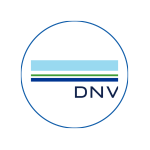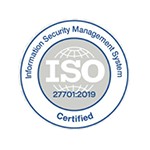The Importance of Compliance and Regulatory Standards in Ship Management
The Importance of Compliance and Regulatory Standards in Ship Management
Compliance with regulatory standards is of paramount importance in the maritime industry. Ship management companies are subject to a complex and ever-evolving regulatory landscape that encompasses various aspects, including safety, environmental protection, crew welfare, and operational practices. This blog post explores the significance of compliance and regulatory standards in ship management. We will provide an overview of the regulatory landscape, discuss the compliance requirements and standards that ship management companies must adhere to, highlight the challenges faced in ensuring compliance, and showcase the role of ship management software in facilitating compliance and documentation. Additionally, we will share strategies for maintaining adherence to regulatory standards and ensuring transparency in ship management operations.
Best Assistance For Ship Management
+90 850 520 0259
Ensuring Company Goals are Met
The Regulatory Landscape in the Maritime Industry
The maritime industry operates within a framework of international and national regulations aimed at ensuring the safety of vessels, protecting the environment, safeguarding crew welfare, and maintaining operational standards. Key international conventions and regulations, such as the International Maritime Organization (IMO) conventions, SOLAS (Safety of Life at Sea), MARPOL (International Convention for the Prevention of Pollution from Ships), and STCW (Standards of Training, Certification, and Watchkeeping), set the foundation for regulatory compliance in ship management.
Compliance Requirements and Standards for Ship Management
Ship management companies must comply with a wide range of regulations and standards. These include safety management systems, emergency response procedures, navigational safety, crew training and certification, environmental protection measures, and documentation requirements. Compliance is not limited to international regulations but also extends to national laws and port state control requirements.
Challenges in Ensuring Compliance
Ensuring compliance with regulatory standards poses several challenges for ship management companies. These challenges include navigating the complexities of multiple regulations, staying updated with evolving requirements, managing diverse operational practices across different vessels, and addressing cultural and language barriers when operating in international waters. Additionally, the lack of standardized processes and varying interpretations of regulations by different authorities can make compliance a daunting task.
Role of Ship Management Software in Facilitating Compliance
Ship management software plays a crucial role in facilitating compliance and documentation. It provides a centralized platform to streamline compliance-related processes, including safety management, crew certification tracking, environmental monitoring, and documentation management. The software automates compliance checks, ensures timely alerts and reminders for inspections and certifications, and maintains a comprehensive record of compliance-related activities. By digitizing and automating compliance processes, ship management software reduces the administrative burden, minimizes the risk of human errors, and enhances data accuracy.
Strategies for Maintaining Adherence to Regulatory Standards
To maintain adherence to regulatory standards and ensure transparency, ship management companies can adopt several strategies:
Establish a Compliance Management System: Implement a robust compliance management system that includes clear policies, procedures, and guidelines for compliance with regulatory standards.
Conduct Regular Audits and Inspections: Conduct internal audits and inspections to identify any compliance gaps and take corrective actions promptly.
Provide Continuous Training and Education: Ensure that crew members and shore-based staff receive regular training and education on compliance requirements, regulations, and best practices.
Stay Updated with Regulatory Changes: Keep abreast of regulatory updates and changes through industry publications, workshops, and participation in industry forums.
Foster a Culture of Compliance: Promote a culture of compliance throughout the organization, emphasizing the importance of adhering to regulatory standards and ethical practices.
Conclusion
Compliance with regulatory standards is vital for ship management companies to ensure the safety of vessels, protect the environment, and maintain operational integrity. Ship management software plays a pivotal role in facilitating compliance by automating processes, centralizing documentation, and providing real-time visibility into compliance-related activities. By adopting strategies such as establishing a compliance management system, conducting regular audits and inspections, providing continuous training, staying updated with regulatory changes, and fostering a culture of compliance, ship management companies can effectively navigate the complex regulatory landscape. These strategies not only ensure adherence to regulatory standards but also promote transparency and responsible practices in ship management operations.
In conclusion, compliance and regulatory standards are crucial pillars of ship management. The maritime industry operates within a framework of international and national regulations to ensure safety, environmental protection, and operational excellence. Ship management companies face challenges in meeting compliance requirements due to the evolving regulatory landscape and diverse operational practices. However, ship management software emerges as a powerful tool in facilitating compliance by centralizing processes, automating checks, and maintaining accurate documentation. By embracing strategies for maintaining adherence to regulatory standards and fostering a culture of compliance, ship management companies can navigate the complexities of compliance effectively and ensure transparency in their operations.
With the ever-increasing focus on safety, environmental sustainability, and ethical practices in the maritime industry, compliance with regulatory standards is not only a legal obligation but also a competitive advantage. Ship management companies that prioritize compliance and leverage technology-driven solutions like ship management software are better equipped to meet regulatory requirements, mitigate risks, and enhance their reputation in the industry. By proactively embracing compliance and regulatory standards, ship management companies can contribute to the overall growth and sustainability of the maritime industry.
Certificates & Class Type Approvals
Privacy Verified & Quality Validated in NOZZLE

Class Type Approval
by DNV

Class Type Approval
by CLASS NK

Information Security
Management

